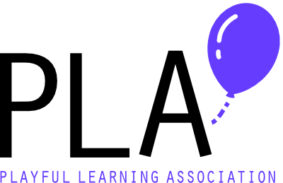People Playing Purposefully with Pedagogical Patterns
Corresponding Author: Daisy Abbott
All authors: Jamie Ferguson
Length: 30 minutes
Location:
Description:
Pedagogical Patterns (PPs) are reusable solutions to a particular challenge in teaching and learning. They grow from the concept of design patterns and pattern languages more generally, PPs offer a format and process for sharing successful teaching techniques, whilst allowing freedom of implementation to fit the needs of individual teachers. (Bergin et al., 2012)
OVERALL AIM:
To facilitate sharing of expert knowledge through and about PPs and to offer them as a useful tool in the design of playful learning.
STRUCTURE:
This will be achieved as follows:
2 minutes – introduction to PPs, what they are for, and the goal of the workshop
15 minutes – exploring some PPs and mapping practice. We will prepare 10-15 of the most relevant PPs (Bergin et al., 2012) in simple terms and ask participants to see if any of their playful learning practice maps to that pattern. This will be recorded (e.g. by sticking a post-it with brief description on each match). In this way, we hope to crowdsource a preliminary list of PPs that participants have found particularly useful for playful approaches.
10 minutes – using PPs in practical terms. We will draw on our previous research mapping PPs to serious game mechanics (Ferguson, Abbott and Louchart, 2023) to invite participants to contribute to recommendations for how PPs might increase accessibility and/or rigour for designing playful interactions. For example, correlations between certain PPs and game styles might emerge, in which case we would draw out from participants what they think makes them successful.
3 minutes – wrap up and action points. We will (attempt to!) curate the ideas of the participants into a short list of action points. These will be developed and released as accessible Follow-Up Actions (hopefully at the conference itself but certainly online afterwards as a minimum). This will expand the workshop’s impact for participants and reach for anyone not able to attend.
OUTCOMES:
There has been very little research into the potential advantages of utilising PPs in the analysis and design of playful and game-based learning. We believe that greater awareness of these patterns can improve collaborative processes and outcomes within playful interdisciplinary learning design. The main outcome will be a greater knowledge of PPs for practitioners to adopt, or challenge, and the Follow Up Actions will provide a practical way to explore the concept further.
References, web links and other resources:
Bergin, J. et al. (eds) (2012) Pedagogical patterns: advice for educators. (Compact ed.), 2nd (corrected) print.: Aug, 31, 2012. Pleasantville, NY: Joseph Bergin Software Tools. Available at: http://www.pedagogicalpatterns.org/.
Ferguson, J., Abbott, D. and Louchart, S. (2023) ‘A Model for Mapping Serious Game Mechanics to Pedagogical Patterns’, in M. Haahr, A. Rojas-Salazar, and S. Göbel (eds) Serious Games. Cham: Springer Nature Switzerland (Lecture Notes in Computer Science), pp. 65–80. Available at: https://doi.org/10.1007/978-3-031-44751-8_5.
Fioravanti, M.L. and Barbosa, E.F. (2018) ‘A Catalog of Pedagogical Patterns for Learning Applications’, in 2018 IEEE Frontiers in Education Conference (FIE). 2018 IEEE Frontiers in Education Conference (FIE), San Jose, CA, USA: IEEE, pp. 1–9. Available at: https://doi.org/10.1109/FIE.2018.8658904.
